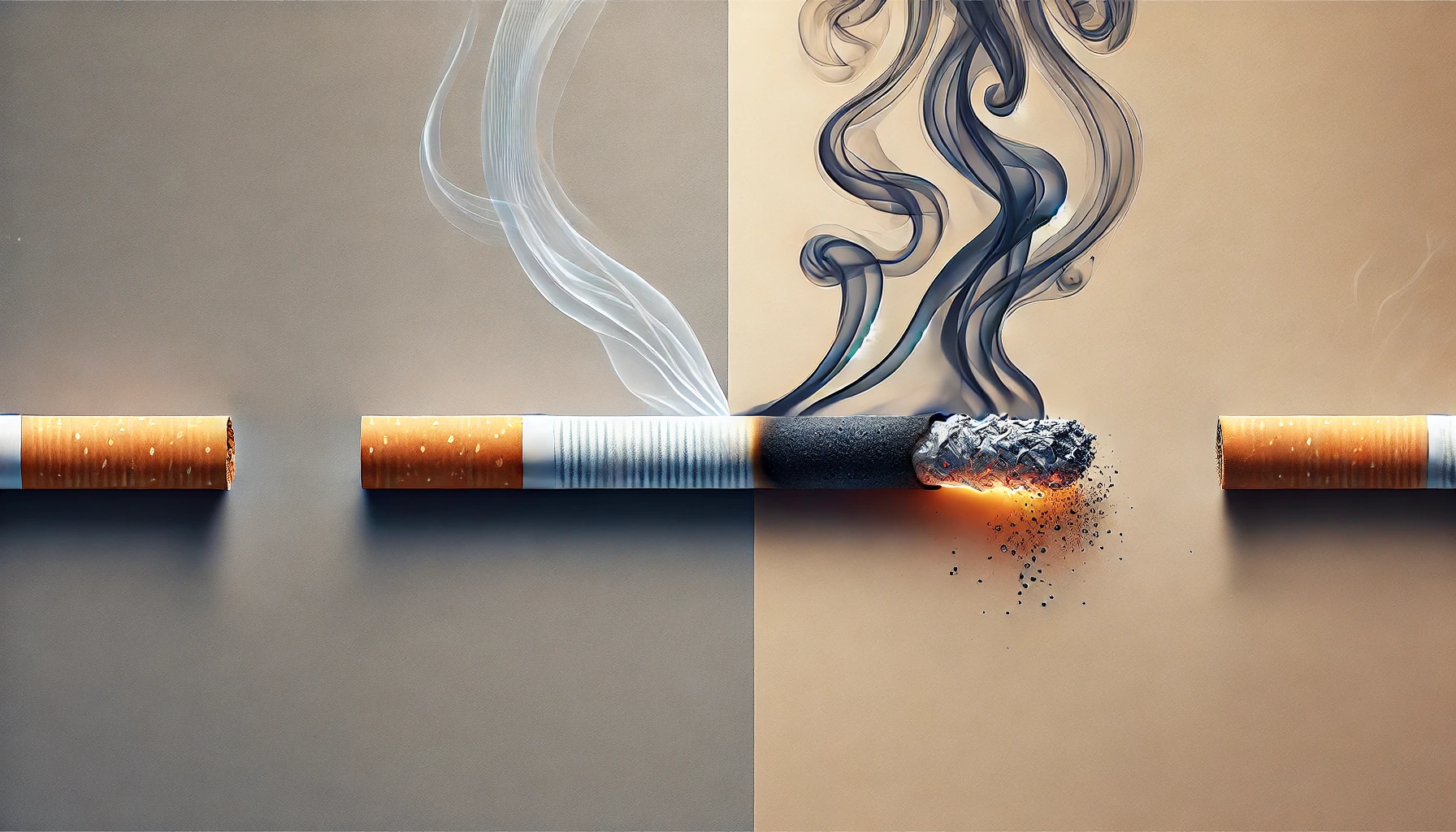Alcohol's Role in Smoking Relapse: Protective for Recent Quitters, Risky for Long-Term Abstainers
A study found that alcohol consumption's impact on smoking relapse varies by abstinence duration, with recent quitters less likely to relapse if they drink, while long-term quitters face increased relapse risk with alcohol use. This highlights the need for tailored, ongoing support for ex-smokers.

A study conducted by researchers from Deakin University, the Roswell Park Comprehensive Cancer Center, and the University of Melbourne has explored the intricate relationship between alcohol consumption and the risk of smoking relapse among former smokers. This study, which draws on data from the International Tobacco Control Four Country Smoking and Vaping Survey, spanned participants from Canada, the United States, England, and Australia, and aimed to uncover whether post-quit alcohol use serves as a predictor of smoking relapse, with a particular focus on how this relationship might differ depending on the duration of smoking abstinence.
Alcohol Consumption and Smoking Relapse: A Surprising Discovery
The study included 1,064 ex-smokers who had participated in the survey during 2018 and 2020, offering a broad and diverse dataset that enhances the reliability of the findings. The participants were adults aged 18 and over, and the researchers utilized multivariable logistic regression to analyze the data, with alcohol consumption assessed using the AUDIT-C, a widely recognized tool for evaluating alcohol use. The consumption levels were categorized into three groups: never/low, moderate, and heavy. The researchers then investigated whether the participants' smoking status in 2020 could be predicted by their level of alcohol consumption in 2018.
Lower Relapse Risk for Recent Quitters Who Drink
Contrary to what might be expected, the study found that alcohol consumption in itself did not predict an overall risk of smoking relapse. However, when the duration of smoking abstinence was factored in, a more nuanced picture emerged. For ex-smokers who had quit within the past year, moderate and heavy alcohol consumption was associated with a lower risk of relapse compared to those who consumed little or no alcohol. Specifically, those who drank alcohol at moderate levels were found to be 66% less likely to relapse, and while the relationship for heavy drinkers was not statistically significant, it also suggested a reduced risk.
A Challenging Finding for Conventional Theories
This finding is particularly surprising given the well-documented effects of alcohol in lowering inhibitions and potentially increasing the urge to smoke. Theories of cross-cue reactivity suggest that the consumption of one substance, such as alcohol, might trigger cravings for another, like nicotine. However, this study’s results challenge that notion, at least in the early stages of smoking cessation. The researchers speculate that during the first year of quitting, ex-smokers might be more vigilant and employ strategies to mitigate the potential risk that alcohol consumption could pose to their cessation efforts. This heightened vigilance could explain the protective effect observed among short-term quitters who drank alcohol.
The Reversal: Long-Term Quitters at Greater Risk
On the other hand, the study found that for those who had been abstinent from smoking for more than a year, the relationship between alcohol consumption and smoking relapse reversed. In this group, both moderate and heavy drinkers were significantly more likely to relapse compared to their counterparts who drank little or no alcohol. The odds of relapse for moderate drinkers were 2.44 times higher, while for heavy drinkers, the odds were more than doubled, although the latter did not reach statistical significance in the adjusted model. This finding aligns with previous research suggesting that as the duration of abstinence increases, the risk of relapse can also rise if ex-smokers consume alcohol at higher levels. The researchers hypothesize that this might be due to a reduction in the vigilance and support that ex-smokers receive as time passes, leading to a greater vulnerability to relapse when faced with high-risk situations, such as alcohol consumption.
Implications for Ongoing Support and Future Research
The study's results underscore the importance of ongoing support for ex-smokers, particularly those who have been abstinent for longer periods. While smoking cessation interventions and aids are often focused on the early stages of quitting, these findings suggest that long-term quitters who consume alcohol may still be at significant risk of relapse and could benefit from tailored interventions that address this ongoing risk. The researchers call for further studies to replicate these findings and to explore the mechanisms that might explain the differential effects of alcohol consumption on smoking relapse risk based on the duration of abstinence.
The study adds a critical layer to the understanding of smoking cessation and relapse, particularly in relation to alcohol consumption. It highlights the complex and evolving nature of relapse risk over time and suggests that the relationship between alcohol and smoking is far from straightforward. For ex-smokers, especially those who have managed to quit for over a year, the findings serve as a cautionary note about the potential dangers of alcohol consumption and the need for sustained support to maintain their smoke-free status.
- READ MORE ON:
- alcohol consumption
- smoking
- Vaping
- ex-smokers
- smoking cessation
- FIRST PUBLISHED IN:
- Devdiscourse










